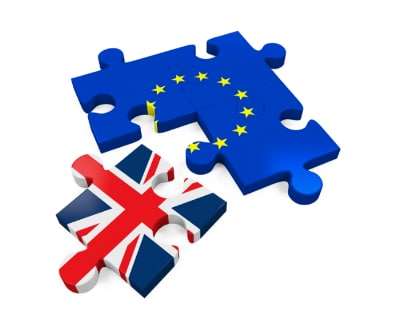The Volokh Conspiracy
Mostly law professors | Sometimes contrarian | Often libertarian | Always independent
British court rules that Brexit requires vote by Parliament

Earlier today, Britain's High Court ruled that the British government cannot initiate the process of leaving the European Union without getting authorization from Parliament. The Lord Chief Justice concluded that the government cannot leave the EU based on the results of the Brexit referendum alone because doing so would be "contrary to fundamental constitutional principles of the sovereignty of parliament."
The government plans to appeal the decision to Britain's Supreme Court. If the appeal fails, they will indeed have to get a parliamentary vote before initiating Brexit. It is unlikely that Parliament would block Brexit outright. But as economist Tyler Cowen points out, the process of parliamentary approval could potentially delay Brexit long enough to undermine it:
No, I don't see them voting down Brexit, any more than Republican Senators ever were going to endorse Hillary Clinton, even though many of them are rooting for her. The more likely scenario out of Brexit is simply that Parliament stalls, demanding that [Prime Minister] Theresa May give them "the right Brexit." Of course there is no such thing, wrong Brexit is wrong Brexit, if only because EU-27 cannot agree on very much. But with enough stalling, eventually another national election will be held and of course Brexit would be a major issue, probably the major issue. That in essence would serve as a second referendum, and if anti-Brexit candidates did well enough, parliamentarians would have cover to go against the previous expression of the public will.
I give that path out of Brexit p = 0.2, with another p = 0.1 for "somehow Brexit just doesn't happen."
Like Tyler, I still think that Brexit is far more likely to go forward (perhaps after a delay) than be forestalled completely. But if the court decision stands, a reversal of the Brexit vote becomes somewhat more likely than it would have been otherwise. In that context, it is worth noting that early reports suggest that it will not be easy for Britain to get favorable exit terms from the rump European Union. The latter may well take a hard line in negotiations. The "Norway option" - advocated by many more sophisticated Brexit supporters - may well be blocked by Norway itself. It would also require Britain to accept free migration of EU nationals - the prevention of which is one of the main goals of many Brexit supporters. If Parliament insists on getting favorable exit terms before it authorizes Brexit, the government might find it hard to satisfy that requirement.
If Brexit does get reversed, that is likely to be good news for libertarians and other free market advocates. While I think both sides had some good arguments in the debate over Brexit, on balance the vote was bad news for liberty, for reasons I discussed here and here. Far from using Brexit as an opportunity to liberalize British economic policy, Theresa May's government is instead taking steps to make it more interventionist, undermining some of the achievements of Margaret Thatcher.
Some experts even argue that the Brexit vote shows that democracies should not use referenda to make important decisions, as they are likely to be affected by widespread public ignorance. I agree that the Brexit vote was a mistake, and that it was significantly influenced by ignorance. But I am not convinced that decision-making by referendum is necessarily worse than the rule of politicians chosen in conventional elections. Both are often influenced by ignorance, illogic, and other political pathologies. Neither is systematically better than the other.
Be that as it may, it sometimes desirable for legislatures to reverse bad decisions made by referendum (and vice versa). The Brexit vote may well be one such case. Over the next few months, we are likely to find out whether such a reversal is actually a realistic prospect.
NOTE: I have edited the headline of this post to make it more clear.


Show Comments (0)